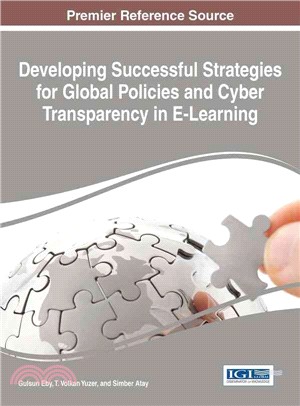

|
Developing successful strategies for global policies and cyber transparency in E-learning /
|
Contributed by information technology, education, and other specialists from Turkey, Tunisia, Nigeria, the Philippines, the US, Australia, and Russia, the 19 articles in this collection consider issues of transparency in global and local e-learning policies, along with management models, communication, pedagogical approaches, new technologies, and evaluation models. They discuss transparency and cybertransparency and accessibility in e-learning; library and information services for open and distance learning, issues of cyberbullying, plagiarism, hacking, and other forms of cheating in e-learning, and extracting knowledge structures using NodeXL in Wikipedia; intellectual property rights issues, security in e-learning systems, Web 2.0 and television in distance education, and affordability and sustainability; and quality standards and online education in the European Union, the use of Maltego Carbon 3.5.3 as a testing tool in online education, and the use of metaphors in e-learning interface design. Other chapters cover the development of a global policy in e-learning based on the Cyber Triple H-Avatar model, the use of Facebook as an informal photography education setting in open and distance learning, cyberspace as an “agora” to democratize education, the role of life-wide learning in the design of curriculum, and new game changers for e-learning systems, the organizational code of cybertransparency in e-learning environments, and e-learners' internet-related issues. Annotation ©2015 Ringgold, Inc., Portland, OR (protoview.com)
